Introduction

Piracy is an act of robbery or criminal violence by ship or boat-borne attackers upon another ship or a coastal area, typically with the goal of stealing cargo and other valuable goods. Those who conduct acts of piracy are called pirates, vessels used for piracy are pirate ships. The earliest documented instances of piracy were in the 14th century BC, when the Sea Peoples, a group of ocean raiders, attacked the ships of the Aegean and Mediterranean civilisations. Narrow channels which funnel shipping into predictable routes have long created opportunities for piracy, as well as for privateering and commerce raiding.
Historic examples of such areas include the waters of Gibraltar, the Strait of Malacca, Madagascar, the Gulf of Aden, and the English Channel, whose geographic structures facilitated pirate attacks. The term piracy generally refers to maritime piracy, although the term has been generalized to refer to acts committed on land, in the air, on computer networks, and (in science fiction) outer space. Piracy usually excludes crimes committed by the perpetrator on their own vessel (e.g. theft), as well as privateering, which implies authorization by a state government.
Piracy or pirating is the name of a specific crime under customary international law and also the name of a number of crimes under the municipal law of a number of states. In the early 21st century, seaborne piracy against transport vessels remains a significant issue, with estimated worldwide losses of US$16 billion per year in 2004, particularly in the waters between the Red Sea and Indian Ocean, off the Somali coast, and also in the Strait of Malacca and Singapore. Modern-day pirates are armed with automatic weapons, such as assault rifles, and machine guns, grenades and rocket propelled grenades. They often use small motorboats to attack and board ships, a tactic that takes advantage of the small number of crew members on modern cargo vessels and transport ships. The international community is facing many challenges in bringing modern pirates to justice, as these attacks often occur in international waters. Nations have used their naval forces to repel and pursue pirates, and some private vessels use armed security guards, high-pressure water cannons, or sound cannons to repel boarders, and use radar to avoid potential threats. (Full article...)
Selected biography -
Henry Every, also known as Henry Avery (20 August 1659 – Disappeared: June 1696), sometimes erroneously given as Jack Avery or John Avery, was an English pirate who operated in the Atlantic and Indian oceans in the mid-1690s. He probably used several aliases throughout his career, including Benjamin Bridgeman, and was known as Long Ben to his crewmen and associates.
Dubbed "The Arch Pirate" and "The King of Pirates" by contemporaries, Every was infamous for being one of very few major pirate captains to escape with his loot without being arrested or killed in battle, and for being the perpetrator of what has been called the most profitable act of piracy in history. Although Avery's career as a pirate lasted only two years, his exploits captured the public's imagination, inspired others to take up piracy, and spawned works of literature. (Full article...)Selected article -
Tortuga Island (French: Île de la Tortue, IPA: [il də la tɔʁty]; Haitian Creole: Latòti; Spanish: Isla Tortuga, IPA: [ˈisla toɾˈtuɣa], Turtle Island) is a Caribbean island that forms part of Haiti, off the northwest coast of Hispaniola. It constitutes the commune of Île de la Tortue in the Port-de-Paix arrondissement of the Nord-Ouest department of Haiti.
Tortuga is 180 square kilometres (69 square miles) in size and had a population of 25,936 at the 2003 census. In the 17th century, Tortuga was a major center and haven of Caribbean piracy. Its tourist industry and references in many works have made it one of the most recognized regions of Haiti. (Full article...)Did you know?
- ... that the opera The Devil and Daniel Webster features a jury of ghosts made up of famous historical American figures who are now residents of Hell; including the pirate Blackbeard?
- ... that indigenous Australian artist Daniel Boyd has depicted colonial figures including Captain James Cook and Governor Arthur Phillip as pirates?
- ... that the developers of Hotline Miami 2: Wrong Number suggested that Australian customers pirate their game?
- ... that Saudi Arabian broadcaster beoutQ pirated and resold beIN Sports programmes during the Qatar diplomatic crisis?
- ... that HMS Redpole, one of the aptly-named coffin brigs, sank in an action with a pirate vessel in August 1828?
- ... that English pirate Henry Every, who was sometimes known as Long Ben, was one of the few major pirate captains to retire with his loot without being arrested or killed in battle?
- ... that, unlike traditional Western societies of the time, many pirate clans operated as limited democracies, demanding the right to elect and replace their leaders?
- ... that red Jolly Roger flags were the most feared of all; all prayed they never encountered the "Bloody Red," which boldly declared that no mercy would be shown and all victims would be killed?
Selected quotations
| “ | Come, let us make a hell of our own, and try how long we can bear it. | ” |
| — Blackbeard | ||
General images
Selected Jolly Roger
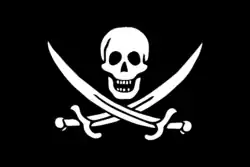
Subcategories
Topics
WikiProjects
Related portals
Things you can do

Contribute
- Work on piracy and pirate articles and help improve them to featured articles.
Expand
- Piracy stub articles
Join
- WikiProject Piracy
WikiProject Piracy Requests
- eliminate red links from List of pirates
- expand Timeline of piracy, specifically to fill in vast gap between the 1890s to 2000s
- revise Bartholomew Roberts
- help with Requested articles and Expand articles
- help with Portal:Piracy
- Create Modern Piracy
Associated Wikimedia
The following Wikimedia Foundation sister projects provide more on this subject:
-
 Commons
Commons
Free media repository -
 Wikibooks
Wikibooks
Free textbooks and manuals -
 Wikidata
Wikidata
Free knowledge base -
 Wikinews
Wikinews
Free-content news -
 Wikiquote
Wikiquote
Collection of quotations -
 Wikisource
Wikisource
Free-content library -
 Wikiversity
Wikiversity
Free learning tools -
 Wiktionary
Wiktionary
Dictionary and thesaurus
-
 List of all portals
List of all portals -

-

-

-

-

-

-

-

-

-
 Random portal
Random portal -
 WikiProject Portals
WikiProject Portals



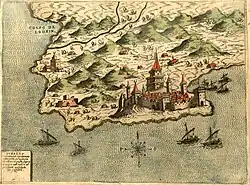


.jpg.webp)

_3.svg.png.webp)
_-_Foto_Giovanni_Dall'Orto%252C_13-4-2006_12.jpg.webp)

_approaches_a_suspected_p.jpg.webp)
_pirates_fighting_British_and_French_sailors%252C_painting_from_1772.jpg.webp)
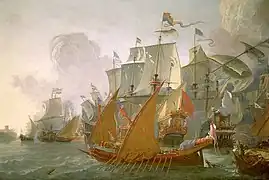
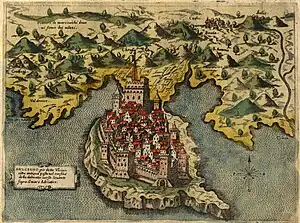



.jpg.webp)
_by_Aert_Anthoniszoon.jpg.webp)





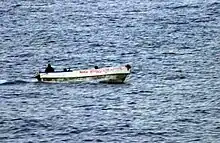
.jpg.webp)
_Moro_'pirate'.jpg.webp)

.jpg.webp)

.jpg.webp)
_crop.jpg.webp)








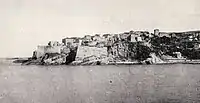



.jpg.webp)

.jpg.webp)
.jpg.webp)


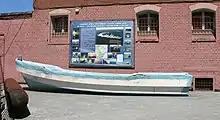



.jpg.webp)

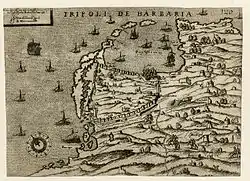








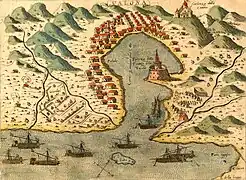

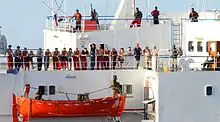
.jpg.webp)










.jpg.webp)



